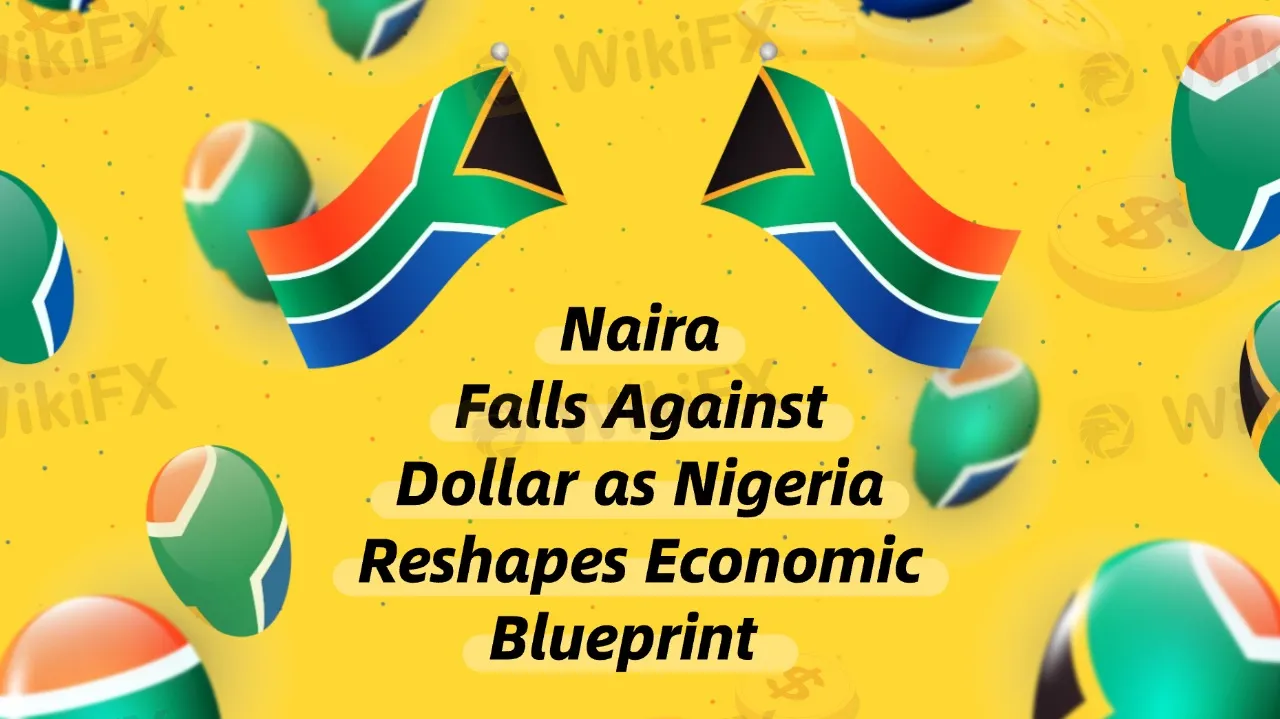Naira Falls Against Dollar as Nigeria Reshapes Economic Blueprint
Abstract:As Nigeria's foreign exchange reserves gradually decrease, the value of the Naira in the foreign exchange market continues to decline, and the exchange rate of the Naira against the US dollar has been consistently dropping, becoming one of the major challenges facing Nigeria's economy.

In January 2025, Nigeria's foreign exchange reserves fell to $40.29 billion, a 1.4% decrease from $40.883 billion at the beginning of the year. At the same time, the Naira‘s exchange rate in the parallel market has been fluctuating. On January 17, 2025, the street rate reached 1,675 Naira to 1 US dollar, depreciating further from 1,665 Naira the previous day. Despite the Central Bank of Nigeria’s ongoing market interventions, the Naira's depreciation trend remains unchecked.
With the decline in foreign exchange reserves, Nigeria's foreign currency supply has become tight, leading to a shortage in currency supply and pushing the Naira-to-dollar exchange rate even higher. Due to global economic uncertainties and internal resource constraints, Nigeria‘s trade imbalance and fiscal deficit remain pressing issues. Furthermore, the country’s economic structure is relatively narrow, heavily reliant on oil exports, making its economy vulnerable to fluctuations in international oil prices. Therefore, Nigeria urgently needs to optimize and adjust its economic structure.
The National Plan to Reshape the Economic Blueprint
The Nigerian government plans to reshape its economic blueprint through a series of reforms. The government will readjust the country's GDP benchmark to more accurately reflect the current state and potential of the economy. In 2024, the National Bureau of Statistics will adopt 2019 as the new base year. This adjustment will include emerging industries such as the digital economy, modular refineries, and the informal economy, reflecting the diversification of Nigeria's economy. In addition, the government will strengthen tax reforms and optimize tax policies to promote the growth of fiscal revenue and reduce debt risks.
Nigeria also plans to further promote the development of the technology and creative industries to enhance overall economic competitiveness. For example, the government will encourage the development of the digital economy, support tech startups, and facilitate the rise of e-commerce, increasing the contribution of the non-oil sector. Meanwhile, measures will be taken to improve infrastructure and drive the modernization of industries and agriculture, laying a solid foundation for long-term economic growth.
Although this process comes with risks and challenges, its potential positive impact will inject new vitality into Nigerias economic development. With the advancement of these reforms, Nigeria is expected to achieve more diversified and sustainable economic growth, securing a more stable position in the global economy.

Read more

Broker Comparsion: FXTM vs AvaTrade
FXTM and AvaTrade are two well-established online brokers offering forex and CFD trading across global markets. Both enjoy strong reputations and high ratings on WikiFX—FXTM holds an AAA overall rating, while AvaTrade scores 9.49/10, indicating they’re regarded as reliable choices by the community. However, since brokers have great reputation in the industry, how do we know which one is more suitable for individuals to invest in? Today's article is about the comparison between FXTM and AvaTrade.

Pi Network: Scam Allegations Spark Heated Debate
A whistleblower report has surfaced, casting doubt on the legitimacy of Pi Network, alleging psychological manipulation, opaque operations, and potential financial exploitation. What is your take on this?

Webull Listed on Nasdaq Following SPAC Merger with SK Growth
Webull and SK Growth complete their business combination, with Webull now trading under the ticker “BULL.” App hits 50 million downloads worldwide.

UN Warns Asian Scam Operations are Spreading Worldwide
UN report reveals Asian scam operations expanding globally, targeting Africa, Latin America with cyberfraud, generating billions amid crackdowns.
WikiFX Broker
Latest News
Love, Investment & Lies: Online Date Turned into a RM103,000 Scam
Broker’s Promise Turns to Loss – Funds Disappear, No Compensation!
Broker Took 10% of User's Profits – New Way to Swindle You? Beware!
Pi Network: Scam Allegations Spark Heated Debate
Broker Comparsion: FXTM vs AvaTrade
Account Deleted, Funds Gone: A New Broker Tactic to Beware Of?
El Salvador and U.S. Launch Cross-Border Crypto Regulatory Sandbox
The Instagram Promise That Stole RM33,000
Coinbase Launches Bitcoin Yield Fund for Institutional Investors
Before You Trade the Next Big Thing, Remember the Dot-Com Collapse
Rate Calc
